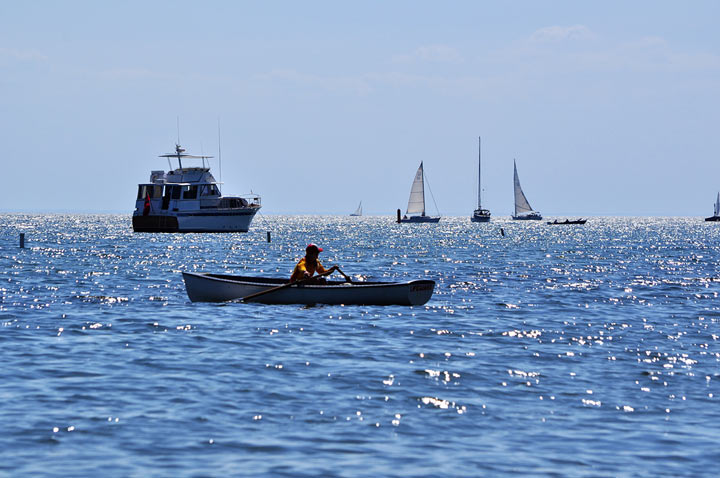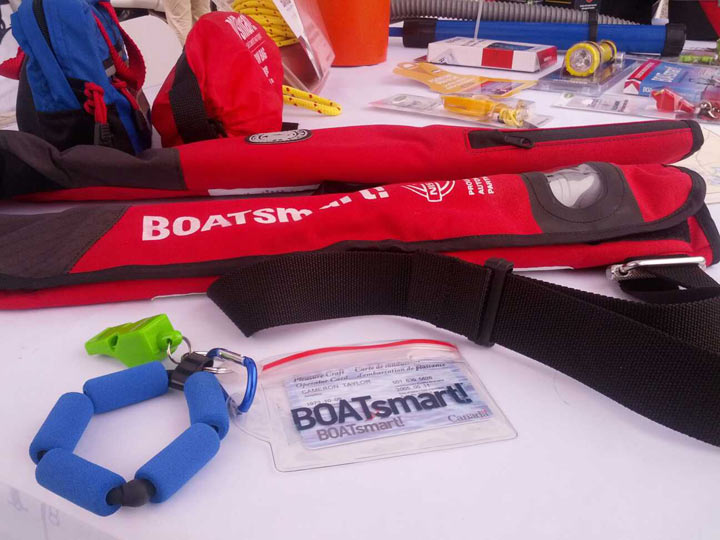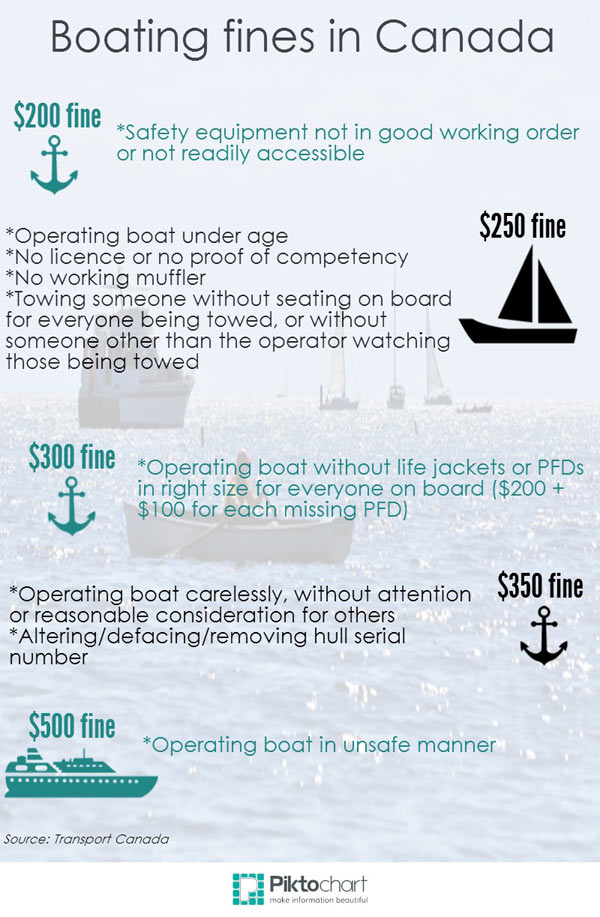TORONTO – It was Canada Day weekend 15 years ago when Bruce Silzer decided to take his 10-foot sailboat out on the water at the Kingston Yacht Club.

Within half an hour, he was in the water, almost dead.
“Without that life jacket—even though it didn’t really work the way I expected it to—I would’ve been dead.”
“Because once I fell off that boat, I would’ve gone right to the bottom. There was nothing holding me up,” said Silzer, now 66. “Once you’re paralyzed, you’re dead weight.”
BOATsmart! president Cameron Taylor says many Canadians don’t understand the consequences of not wearing a personal flotation device (PFD) like a life jacket; possibly because their parents didn’t wear them or because they’ve boated for years without any accidents.
“Seventy-nine per cent of people that drown in boating-related accidents unfortunately aren’t wearing life jackets. So putting that approved life jacket or PFD on is the most important thing you can do as a boater, so even if you get in trouble, you can ensure that you can stay safe. It’s just like a seatbelt in a car: Doesn’t work unless you wear it.”
Silzer, an experienced boater and trained swimmer, said he did everything “by the book” before setting sail on Lake Ontario.
“The weather conditions were absolutely marvelous. I was taking all safety precautions – I had the life jacket on, I had the scoops—even before it was legislated, I had all the equipment.”
But it wasn’t enough to combat the microburst (an intense, localized wind) that hit him about 10 metres from the shore. Silzer said the wind lifted the boat out of the water about a metre, twisted it and slammed it down “almost in an inverted position.”
READ MORE: Thunderstorms 101 – Downbursts, microbursts…what it all means
He came up underneath the sail in the water, and was able to climb into the hull of his boat as it was filled by the waves. Silzer’s father, who was watching the whole thing from shore, signaled to the yacht club staff.
By that time, Silzer said hypothermia was starting to kick in. (After not wearing a PFD, cold water is the second-most significant risk factor contributing to why victims drown).
Silzer continued to drift, was unable to swim because of hypothermia, and said he was basically paralyzed. The approved life jacket he wore came up around his head because of the waves, created a funnel and caused him to start swallowing water.
Staff came on a Zodiac boat to help him. Silzer was unconscious and next remembers waking up on shore next to his dad.
But many aren’t as lucky as Silzer — in Canada, there are about 120 boating-related deaths in Canadian waters each year.
- ‘Shock and disbelief’ after Manitoba school trustee’s Indigenous comments
- Canadian man dies during Texas Ironman event. His widow wants answers as to why
- Several baby products have been recalled by Health Canada. Here’s the list
- ‘Sciatica was gone’: hospital performs robot-assisted spinal surgery in Canadian first
Taylor said planning for a safe trip includes making sure all safety equipment is in working order and everyone on board knows how to use it, and emphasizes checking the weather before you head out, especially since May can be erratic.
He says the BOATsmart! operator exam (to get your boat licence) is meant to give Canadians the knowledge to boat with confidence, understand the rules and safety equipment. The card also allows you to avoid a $250 fine.
Get the $49.95 BOATsmart! card here and check out their family discounts
Drinking and boating is another activity to avoid, particularly common in young males in small open boats who can lose their balance and go overboard.
“So if it’s a hot sunny day, the motion of your boat, the wind, the waves—all those sort of distractions can amplify the negative effects of alcohol and further reduce your response time and judgment,” said Taylor.
“Many Canadian boaters don’t realize that the effects of alcohol are up to four times greater on water than when consuming alcohol on land.”
Some might say Mother Nature can strike even if, like Silzer, you take all safety precautions, so why bother? But the survivor says that’s the wrong way to look at it.
“If you understand safety systems and you’re trained and you apply them, you will lengthen the time of survival so that somebody can pull you out and resuscitate.”
Silzer bought a catamaran and invested in a radio so he’d be able to contact police if anything happens again. He recounts his story to anyone he sees wearing a loose-fitting life jacket, encouraging people to buy tight-fitting, self-righting jackets.
Silzer says everyone goes boating with the expectation they’re not going to be in the water, but that’s not always the case.




Comments